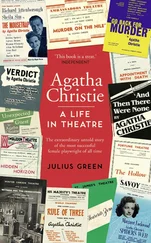Alice Green - Town Life in the Fifteenth Century, Volume 1
Здесь есть возможность читать онлайн «Alice Green - Town Life in the Fifteenth Century, Volume 1» — ознакомительный отрывок электронной книги совершенно бесплатно, а после прочтения отрывка купить полную версию. В некоторых случаях можно слушать аудио, скачать через торрент в формате fb2 и присутствует краткое содержание. Жанр: literature_19, foreign_antique, foreign_prose, Историческая проза, на английском языке. Описание произведения, (предисловие) а так же отзывы посетителей доступны на портале библиотеки ЛибКат.
- Название:Town Life in the Fifteenth Century, Volume 1
- Автор:
- Жанр:
- Год:неизвестен
- ISBN:нет данных
- Рейтинг книги:3 / 5. Голосов: 1
-
Избранное:Добавить в избранное
- Отзывы:
-
Ваша оценка:
- 60
- 1
- 2
- 3
- 4
- 5
Town Life in the Fifteenth Century, Volume 1: краткое содержание, описание и аннотация
Предлагаем к чтению аннотацию, описание, краткое содержание или предисловие (зависит от того, что написал сам автор книги «Town Life in the Fifteenth Century, Volume 1»). Если вы не нашли необходимую информацию о книге — напишите в комментариях, мы постараемся отыскать её.
Town Life in the Fifteenth Century, Volume 1 — читать онлайн ознакомительный отрывок
Ниже представлен текст книги, разбитый по страницам. Система сохранения места последней прочитанной страницы, позволяет с удобством читать онлайн бесплатно книгу «Town Life in the Fifteenth Century, Volume 1», без необходимости каждый раз заново искать на чём Вы остановились. Поставьте закладку, и сможете в любой момент перейти на страницу, на которой закончили чтение.
Интервал:
Закладка:
Even towns which like Rye had known all the calamities of war were only waiting for a moment of peace to win their share of the common prosperity. Burned by the French in 1377, burned and laid desolate again in 1448, Rye long remained on the level of poverty common in the Middle Ages. In 1414 it sheltered a mere handful of struggling people – twenty-one poor householders in Nesse Ward, twenty-eight in Water Melle Ward, and a somewhat larger number in Market Ward equally poor; within its walls, in fact, there was but one man – the lord of the manor – who was assessed at so great a sum as 6 s. 8 d. , though there was the beginning of a fashionable suburb in the Ward without the Gate, where the Mayor lived with some dozen other well-to-do householders, two of whom besides the Mayor were assessed at the aristocratic figure of 6 s. 8 d. By the end of the century, however, Rye fishermen were known on distant seas and Rye traders in the fairs at home and abroad. London merchants had bought property in the thriving town, and new quarters had sprung up with names borrowed from the capital – Paternoster Ward and Bucklersbury Ward. In 1493 five of the burghers were assessed as owning £400 each, and the total value of the property possessed by the inhabitants was £6,303. 17 17 Ibid. v. 497.
Evidence of accumulating wealth indeed gathers on every side. The labour and enterprise which in earlier centuries had covered England with castles and cathedrals and monasteries was now absorbed in the work of covering it with new towns. A journey through any part of the country to-day is enough to show us how ruthlessly the men of the fifteenth century swept away the parish churches which their fathers had built in the fourteenth century, to replace them with the big bare fabrics where size and ostentation too often did service for beauty, and in the building of which prosperous burghers gave more conspicuous proof of wealth and lavish generosity than of taste and feeling. In Canterbury and Worcester and Nottingham and Bristol and a host of other towns we may still admire the new houses that were being raised for the traders, with their picturesque outlines and fine carved work. Waste places in the boroughs were covered with buildings and formed into new wards. On every side corporations instinct with municipal pride built Common Halls, set up stately crosses in the market-place such as we still see at Winchester or Marlborough, paved the streets, 18 18 Act of Parliament for paving Gloucester, 1455; Fosbrooke’s Gloucestershire, i. 157. For Exeter in 1466; Freeman’s Exeter, 91. For Canterbury in 1474, because the “evil report” carried away by pilgrims “would be stopped if the roads were properly pitched with boulders and Folkestone stone”; Hist. MSS. Com. ix. 168, 144, 174. For Southampton in 1477, after a century of vain attempts to pave the streets; Davies, 119, 120; in 1384 a tax was levied for pavage; in 1441 accounts were rendered of paving stones provided; payments were made in 1457 to a London paviour. By the Act each citizen was ordered to pave before his own door as far as the middle of the street since “the town was full feebly paved and full perilous and jeopardous to ride or go therein, and in especial in the High Street,” so that “strangers thither resorting have been oftentimes greatly hurt and in peril of their lives.” For Bristol in 1491 when the whole town seems to have been new paved. Ricart, 47-48.
or provided new water-supply for the growing population. 19 19 To take a single instance, in 1421 the water-supply of Southampton was undertaken by the council, and new leaden pipes provided by the grant of a burgess who had thus bequeathed his money “for the good of his soul.” An aqueduct was made at considerable expense in 1428; 261 days’ work at it was paid at from 4 d. to 6 d. a day; over £12 more was spent on an iron grating for it, and 27 s. 2 d. given to the plumber who fixed it; great stones from Wathe called “scaplyd stonys” were carried, with loads of chalk, quicklime, pitch, rosin, solder, wax, and wood. In 1490 a new well was made with a “watering-place for horse and a washing-place for women.” Davies, 115, 117; Hist. MSS. Com. xi. 3, 138-40. In many towns wells were repaired, enclosed with a wall and covered with a roof and put under the care of wardens.
If we count up the new gates, and quays, and bridges, and wharves, and harbours, and sluices, and aqueducts, and markets of which the town records furnish accounts, we are filled with amazement at an activity which was really stupendous. Public duty and private enterprise went hand in hand. Sometimes the whole commonalty was called out to help at the church-building, or the digging of a new harbour; sometimes the charity once given to religious uses was turned into the channel of civic patriotism, and good citizens left money to found hospitals and almshouses and schools, to pave the streets, to pay the tolls of their town, to fee lawyers to defend its privileges, or buy a charter to protect its rights from invasion. Thus it was two traders of Canterbury who built in 1400 the first private bridge over the river; and in 1485 a mercer from London, William Pratt, constructed at his own expense the first main drain under the Old Street to carry off the rain-water into the river. 20 20 Hist. MSS. Com. ix. 137, 145. See Paston, i. 434; Hist. MSS. Com. xi. 7, 169; x. 4, 529-30.
In Birmingham the whole community formed itself into a “guild and lasting brotherhood” for the doing of works of charity, and chiefly it would seem for the repairing of two great stone bridges and divers foul and dangerous ways on the high road to Wales – a work which the Corporation was too poor to undertake. 21 21 English Guilds, 241, 249.
Nor was this growth in wealth the only, or indeed the most striking part of the town’s history during these three centuries from the time of Henry the Second to the time of Henry the Seventh. Trade is pretty much the same wherever it exists at all, and from its narrow dominion much of human energy will always make a way to escape. When Englishmen had spent a measure of their force in creating a nation of shopkeepers, there was still enough of buoyant and exuberant strength left to elaborate an art of government which has affected the history of the world; and the truly characteristic part of the mediæval story is that which enables us to measure the political genius with which the forerunners of our modern democracy shaped schemes of administration for the societies they had created of free workers. There was much to be done in the new ordering of life. 22 22 For the contrast in this respect between the shire and the borough see Round’s Geoffrey de Mandeville, 356-7.
Already in the twelfth century a new force had declared itself when in France the middle and lower classes for the first time found a voice in literature. From that time onwards poets of the people and teachers of socialism, writing in the vulgar tongue for common folk, proposed startling questions and boldly pressed home their conclusions. Nothing was safe from their criticism; as they discussed the original rights of men, the “social contract” between the people and their lords, the tyranny of nobles, or the rights of peasants, 23 23 Luchaire, Communes Françaises, 22-25. See Piers Ploughman, passus i. 139-146; ii. 90-99; ix. 19-76; x. 223-227.
these new thinkers among the people gave warning of growing energies too big and passionate to live at ease in the narrow bondage of mediæval custom and tradition. The inevitable changes however came slowly, and those who lived in the midst of the movement were themselves unconscious of the real transformation that was going on. Even at the end of the fourteenth century the writer of Piers Ploughman, when he paints for us the picture of the feudal world as it then was, has no dream that its bondage can ever be broken, that there is any escape out of the prison-house of mediæval society. For the first time we there see England, not as it appeared to historians and satirists of the court or the monastery, but as it looked to one standing in the very midst of that vast “field full of folk from end to other” – to the poet who walked among the people with his heart full of charity and pity, who by day mixed with the crowd at the fair, or watched the bargainings in the market-place, or travelled along country by-ways and entered the hovels of the poor, and at night sat in the ale-house among beggars and mendicant friars. But while he shows us all the trouble and confusion of that tumultuous crowd, the social order remains to him simple and unchangeable – fixed, in his belief, as firmly as the decrees of God and nature could establish it. He could only repeat the old time-honoured counsels of work and obedience as the final remedy for all social ills: “Counsel not the commons the King to displease.” But it was more than possible that work and obedience might still leave, as it had left before, life empty of all but misery. Then the last solace lay in resignation.
Интервал:
Закладка:
Похожие книги на «Town Life in the Fifteenth Century, Volume 1»
Представляем Вашему вниманию похожие книги на «Town Life in the Fifteenth Century, Volume 1» списком для выбора. Мы отобрали схожую по названию и смыслу литературу в надежде предоставить читателям больше вариантов отыскать новые, интересные, ещё непрочитанные произведения.
Обсуждение, отзывы о книге «Town Life in the Fifteenth Century, Volume 1» и просто собственные мнения читателей. Оставьте ваши комментарии, напишите, что Вы думаете о произведении, его смысле или главных героях. Укажите что конкретно понравилось, а что нет, и почему Вы так считаете.












